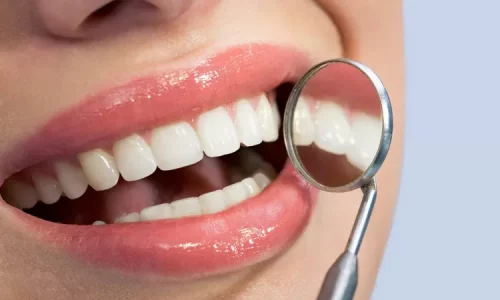Navigating the world of dental insurance can sometimes feel like deciphering a foreign language. With…

Dental Costs With and Without Insurance
Everyone needs dental care at some point. However, not everyone wants to pay for insurance coverage. Chances are you’ve thought about costs tied to proper treatment. If you’re considering covering dental costs out-of-pocket on a per-treatment basis, knowing common procedure costs is important. While avoiding upfront costs from purchasing a dental insurance plan may seem cost-effective, having a great dental plan can greatly reduce your overall cost of care.
Check-Ups
Common check-up and cleaning costs vary. Dentists charge different rates depending on your situation and where you live. In most places, an average check-up costs about $288, which covers an exam, x-rays, and cleaning.
Fillings
Fillings, while more expensive than basic dental check-ups, both fix cavities and protect your mouth’s future health. Most filling treatments hold stable prices in the following ranges:
- $50 to $150 for a single, silver amalgam filling.
- $90 to $250 for a single, tooth-colored composite filling.
- $250 to $4,500 for a single, cast-gold or porcelain filling.
In most cases, prices may increase if a filling is “hard to reach”. A back molar, an impacted tooth or other complications may cost more than a simple filling for a front tooth.
Tooth Extractions
“Non-surgical” extractions and “surgical” extractions are needed when a tooth can’t be repaired. Treatment costs depend on the visit’s length and difficulty. In general, both non-surgical and surgical extractions need anesthesia. Average tooth removals cost:
- $75 to $300 for non-surgical, gum-erupted tooth extraction.
- $150 to $650 for a surgical extraction utilizing anesthesia.
- $185 to $600 for soft-tissue and complicated surgical extractions.
- $75 to $200 for wisdom tooth extraction.
Impacted teeth can also boost costs up to $600, depending upon the tooth’s location.
Crowns
While fillings are needed to block off a tooth’s internal damages, crowns protect a tooth’s “outside area”. Crown placement normally follows a root canal treatment, and a crown’s cost is tied to the base’s material. Crowns can vary widely on materials used and, subsequently, cost:
- An average $328 per single resin crown.
- An average $821 per single porcelain-fused crown.
- An average $776 per single full cast high noble metal crown.
Root Canals
Root canal treatment and impacted tooth “root cutting” is used on patients with exposed, infected or damaged tooth roots. Most often, root canal treatment costs are tied to the procedure’s difficulty.
- An average $120 for a single, exposed root removal procedure.
- An average $185 for a single, residual tooth root removal procedure.
Does Dental Insurance Save Money?
Dental services can be expensive. Many patients try to avoid dental expenditures by avoiding dental insurance altogether. While dental insurance coverage does typically require a monthly or annual premium, and some upfront costs or co-payments, in most cases dental insurance actually lowers a person’s overall dental costs. Patients with “average” dental plans can reduce their costs by the following amounts:
- 100 percent of costs for annual routine care.
- 80 percent of costs for fillings, basic procedures, and root canals.
- 50 percent of costs for bridges, crowns, and other major procedures.
There are more dental insurance options than ever before, so finding the right plan to balance your costs vs. savings is possible. According to The American Dental Association’s research, the dental benefits market provides more options for Americans and increased transparency by the federal government, making it easier to navigate the system. These governmental changes have made finding information and getting great coverage easier.
Bottom line: The world of great dental care is here, and dental insurance can protect your teeth and bank account.
Sources: Brighter.com, Bankrate.com, RWJF.com, HIAA, Health CostHelper


